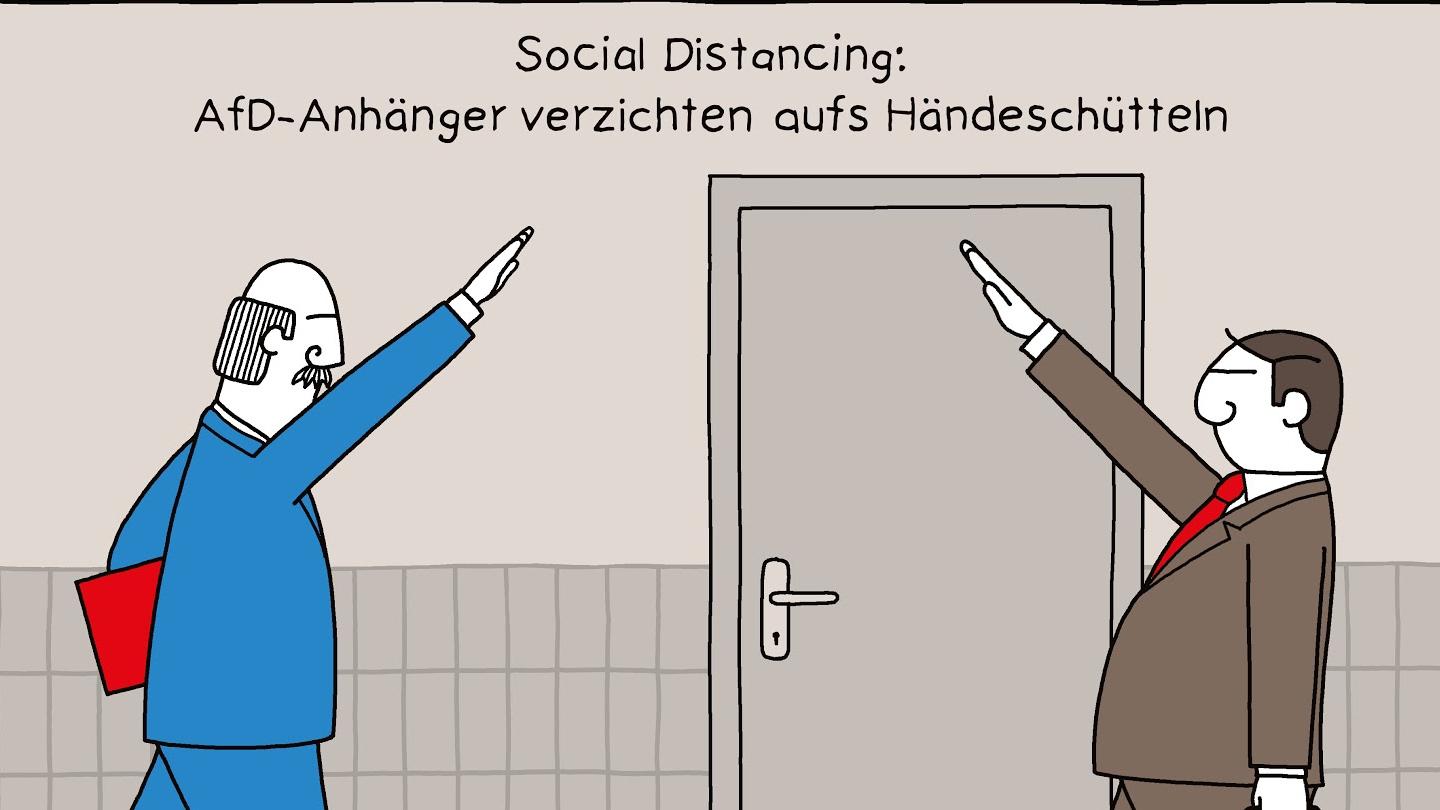It says a lot that in Germany today, you can find a book of cartoons called “#Antisemitismus für Anfänger” or “#Anti-Semitism for Beginners,” put out by a unique, Jewish children’s book publisher.
But what prompted this “anti-Semitism-for-dummies” approach is that anti-Semitism is still a problem in Germany. In fact, it’s on the rise.
Related: No Joke! How two cartoonists spurred revolution during Arab uprisings
Katharina Greve, a Berlin-based cartoonist who contributed to “#Antisemitismus für Anfänger,” has this dark observation:“Anti-Semitism is a German tradition.”
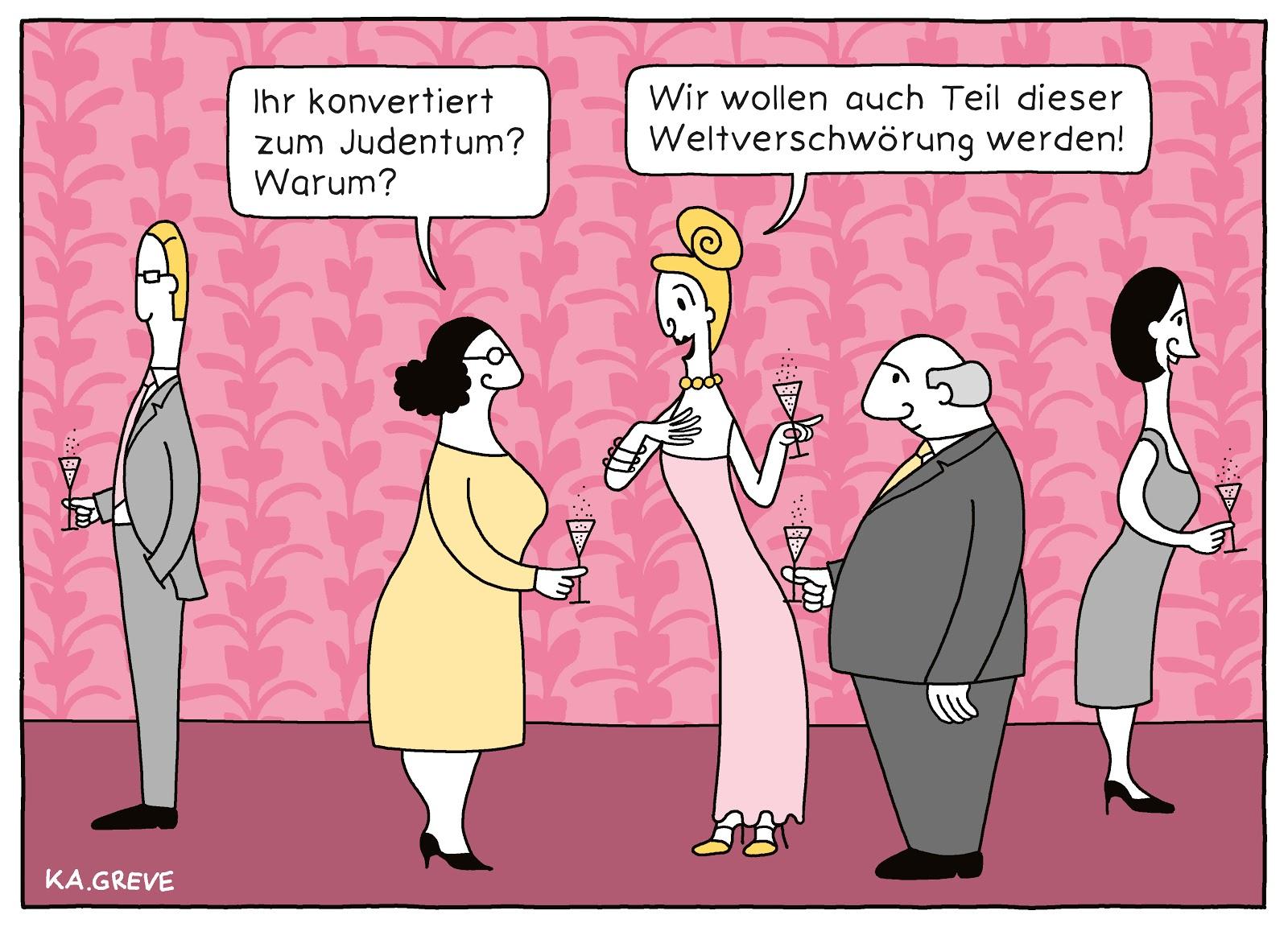
In one of her cartoons featured in the book, some respectable, educated, well-heeled Germans are at a party talking.
One woman asks a couple: “You are converting to Judaism? Why?” The other woman answers: “We want to be part of a worldwide conspiracy, too.”
Related: Political cartoonists illustrate a ‘fractured states of America’
Greve says Germans definitely know their history but there’s a kind of middle-class, anti-Semitism at work these days.
“It’s a kind of micro-anti-Semitism, and everyone has a little of it in them. Sometimes, it’s to criticize Israel and to tell Israel how to act. It’s not ‘we have to kill all Jews’ now. It’s to tell Israel not to make the same mistake.”
“It’s a kind of micro-anti-Semitism, and everyone has a little of it in them. Sometimes, it’s to criticize Israel and to tell Israel how to act. It’s not ‘we have to kill all Jews’ now. It’s to tell Israel not to make the same mistake.”
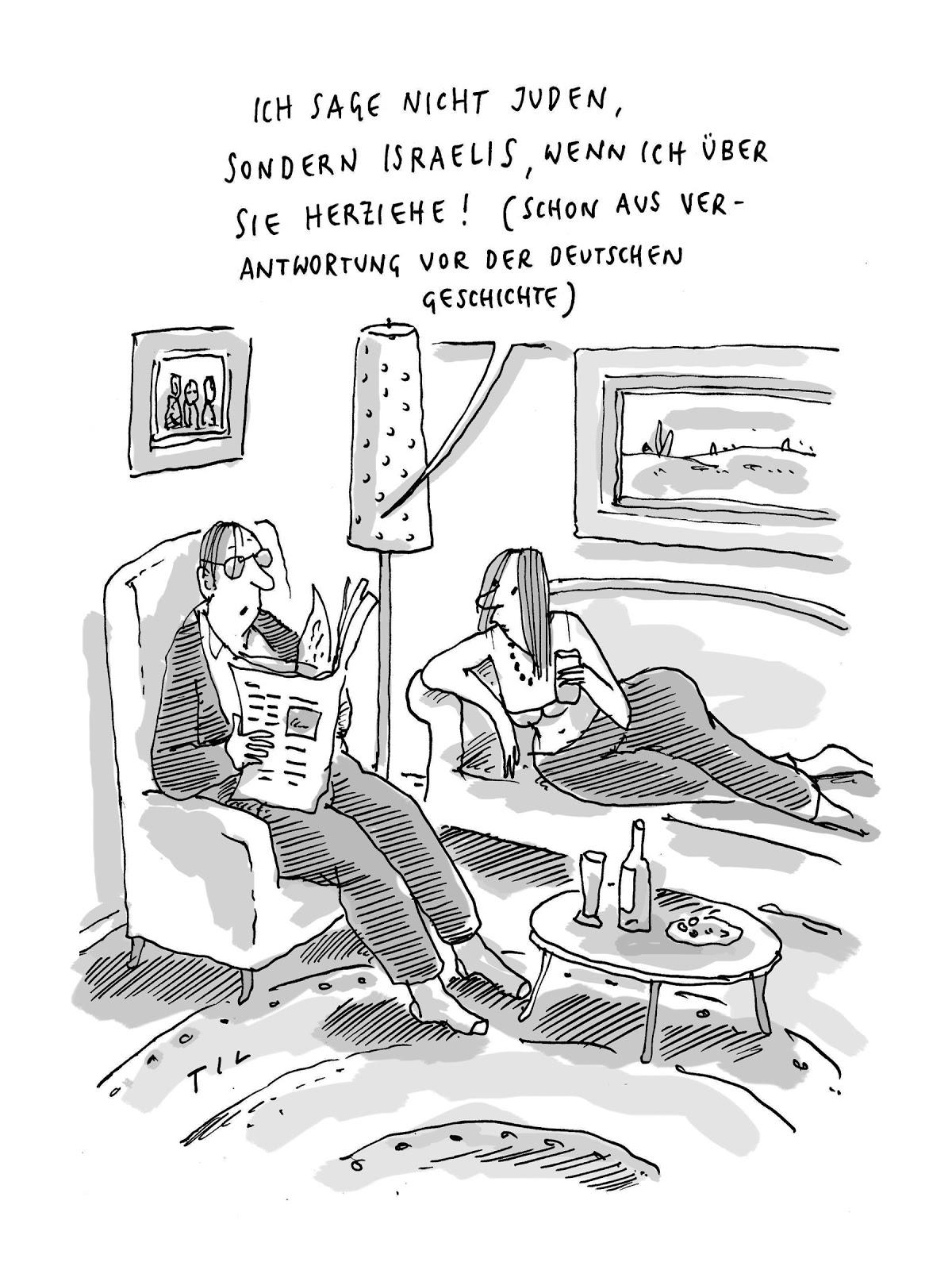
Til Mette is another contributor to “#Anti-Semitismus für Anfänger.”” He cartoons for the popular German news magazine Stern.
“We live in very very weird times. In Germany, in France, in the US, we all have the same tendencies, with right-wing extremists showing up.”
“We live in very very weird times. In Germany, in France, in the US, we all have the same tendencies, with right-wing extremists showing up.”
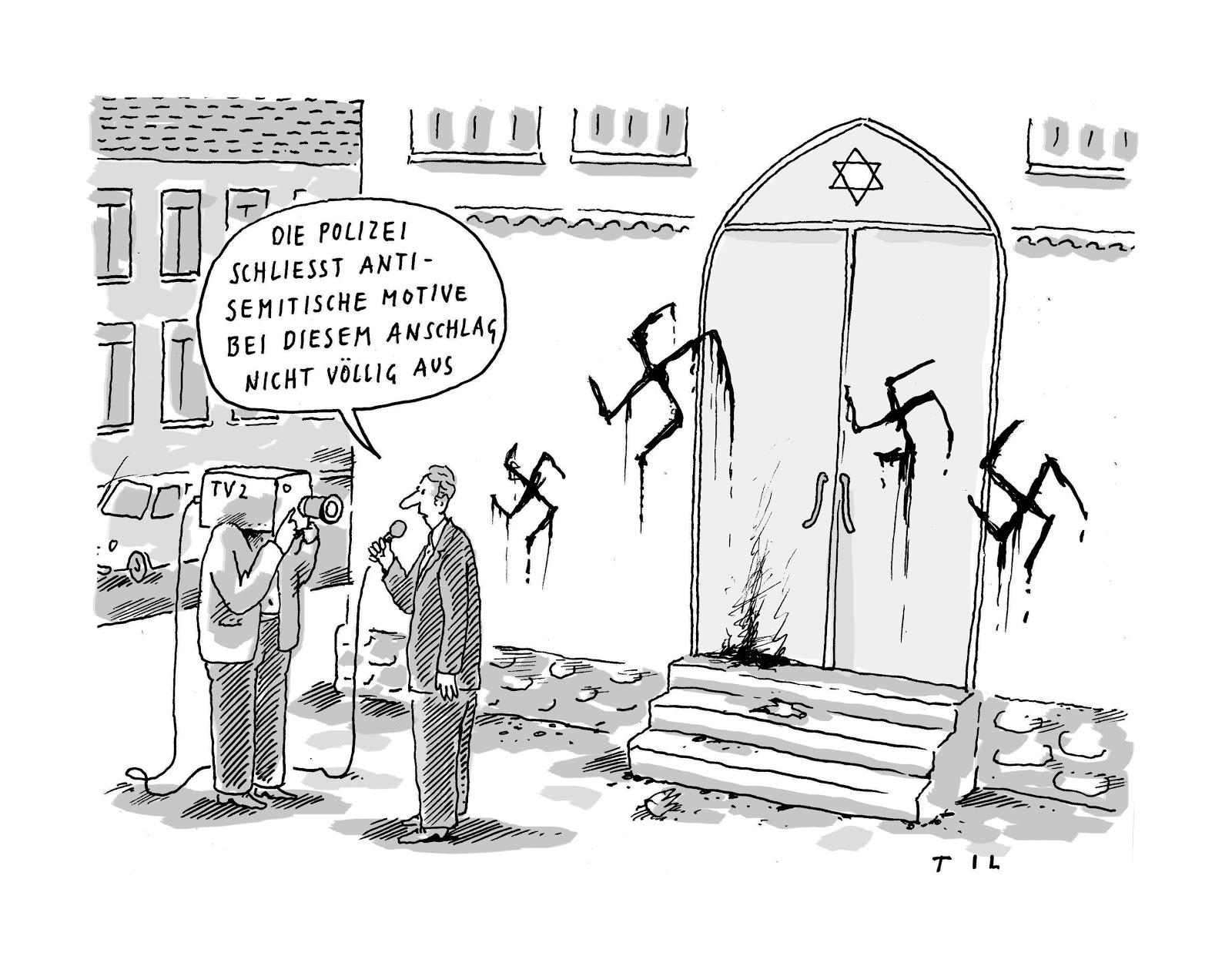
Mette, 64, grew up at a time when Germany was coming to terms with its Nazi past and transforming itself into a strong, liberal democracy. Anti-Semitism is something he takes very seriously.
“Especially, if you’re from Germany, you know that this is a topic that stays with you a lifetime,” he said.
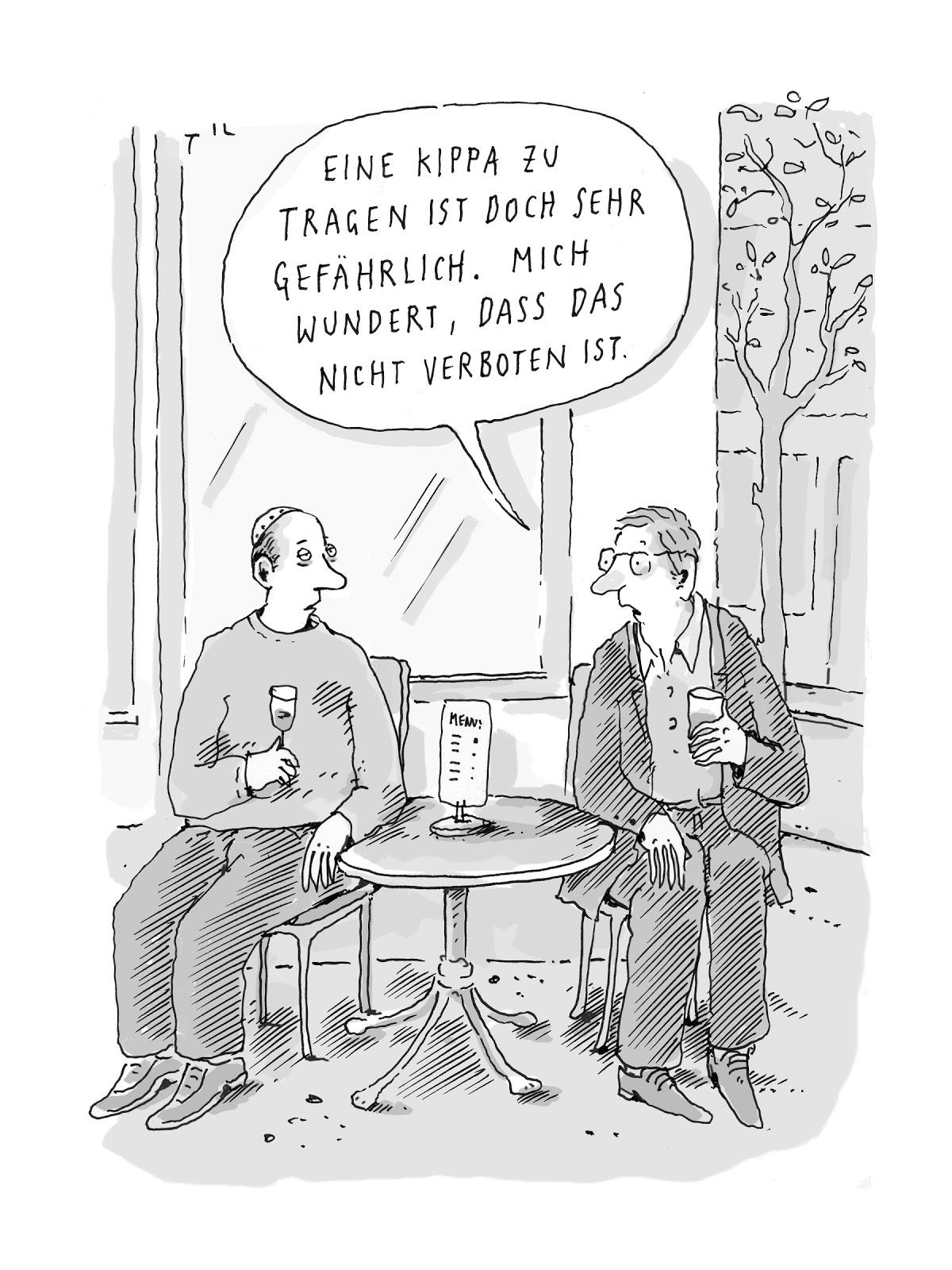
Mette knows the audience for his cartoons in Stern and “#Anti-Semitismus für Anfänger” are overwhelmingly liberal, but at this point, he doesn’t know how to reach far-right neo-Nazis, some of the main stokers of anti-Semitism in Germany. He says he’s at a loss.
“It doesn’t work to fight Nazis. They won’t look at it. We don’t have the tools to fight Nazis.”
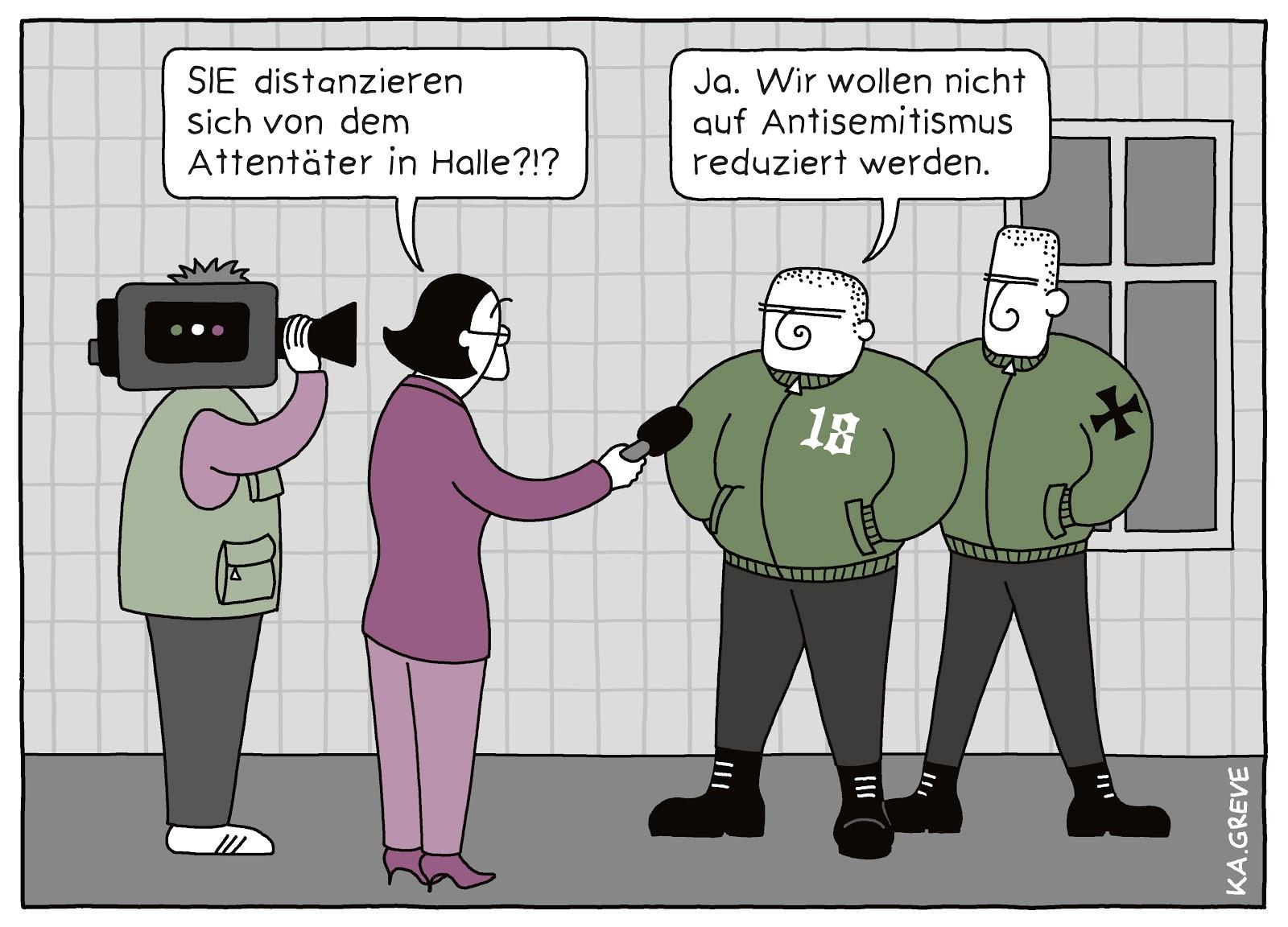
Mette says his cartoons may not cure anti-Semitism but he’s going to keep on drawing them. It’s what he does.
“It can capture an idea in one single drawing and it triggers something in your body. You don’t have to use your brain. Your belly tells you whether to laugh or not to laugh.”
Our coverage reaches millions each week, but only a small fraction of listeners contribute to sustain our program. We still need 224 more people to donate $100 or $10/monthly to unlock our $67,000 match. Will you help us get there today?
